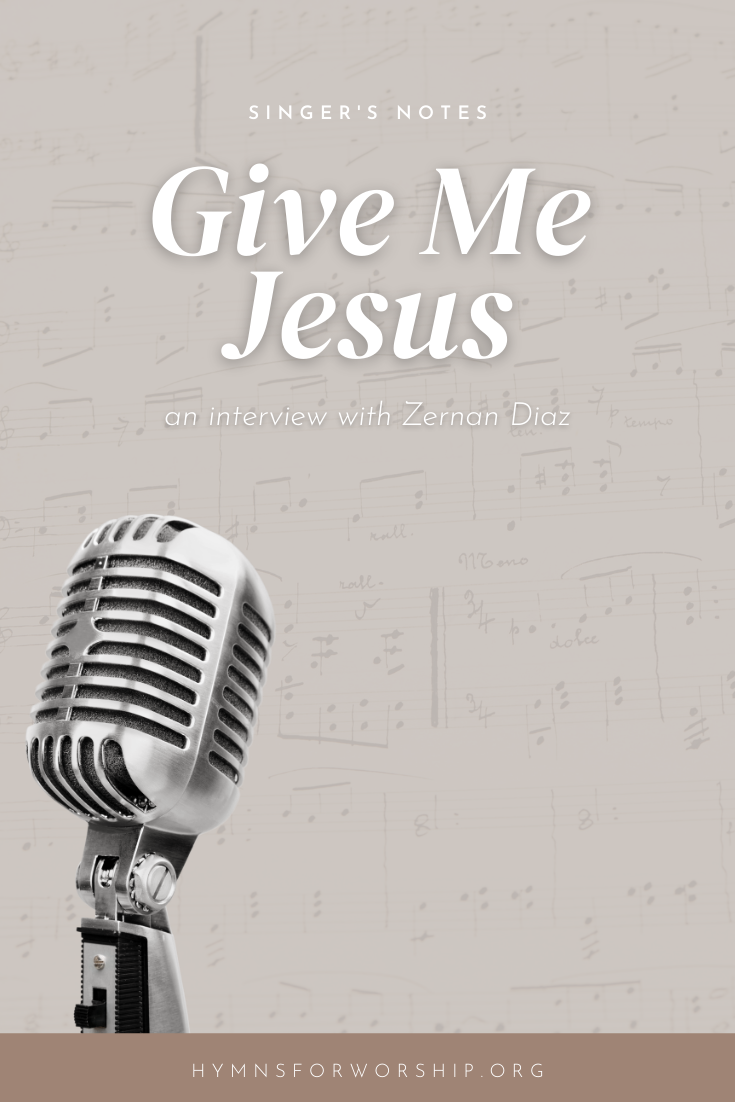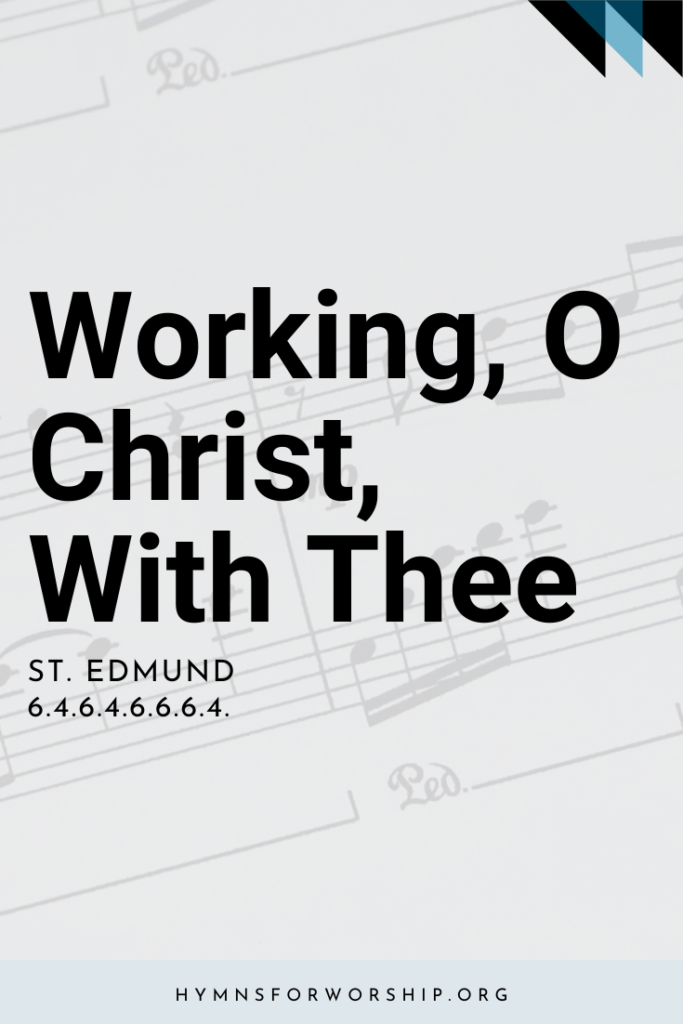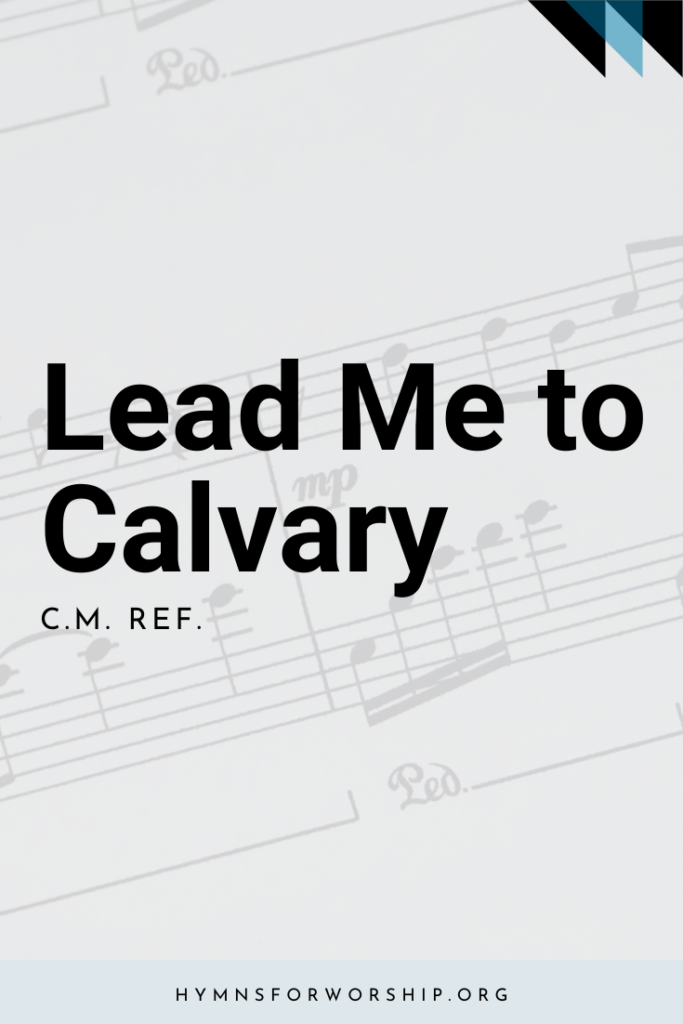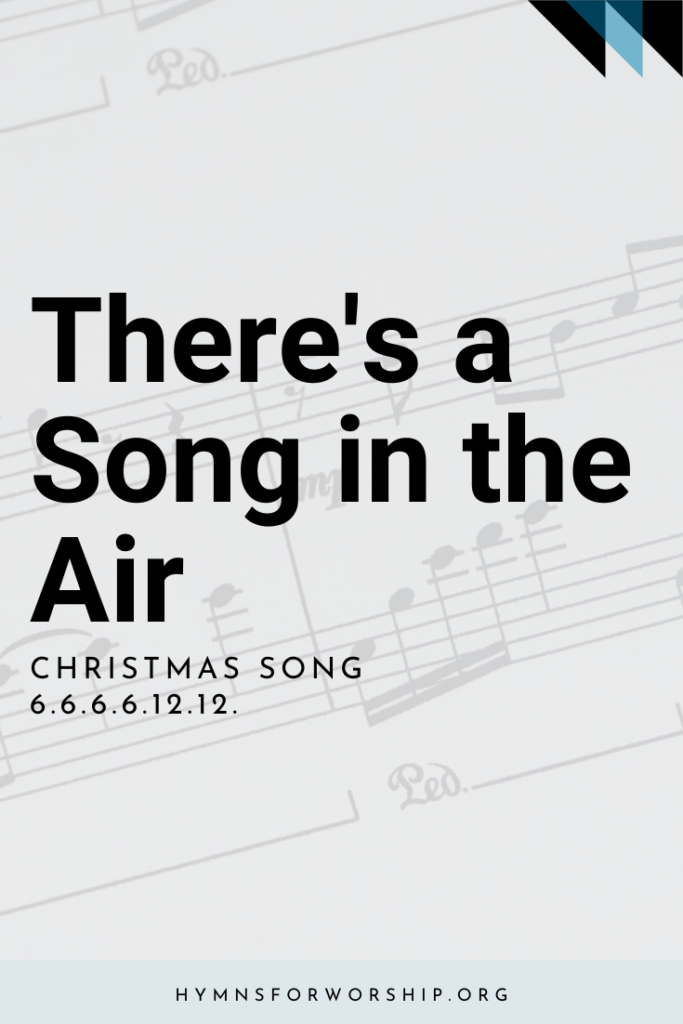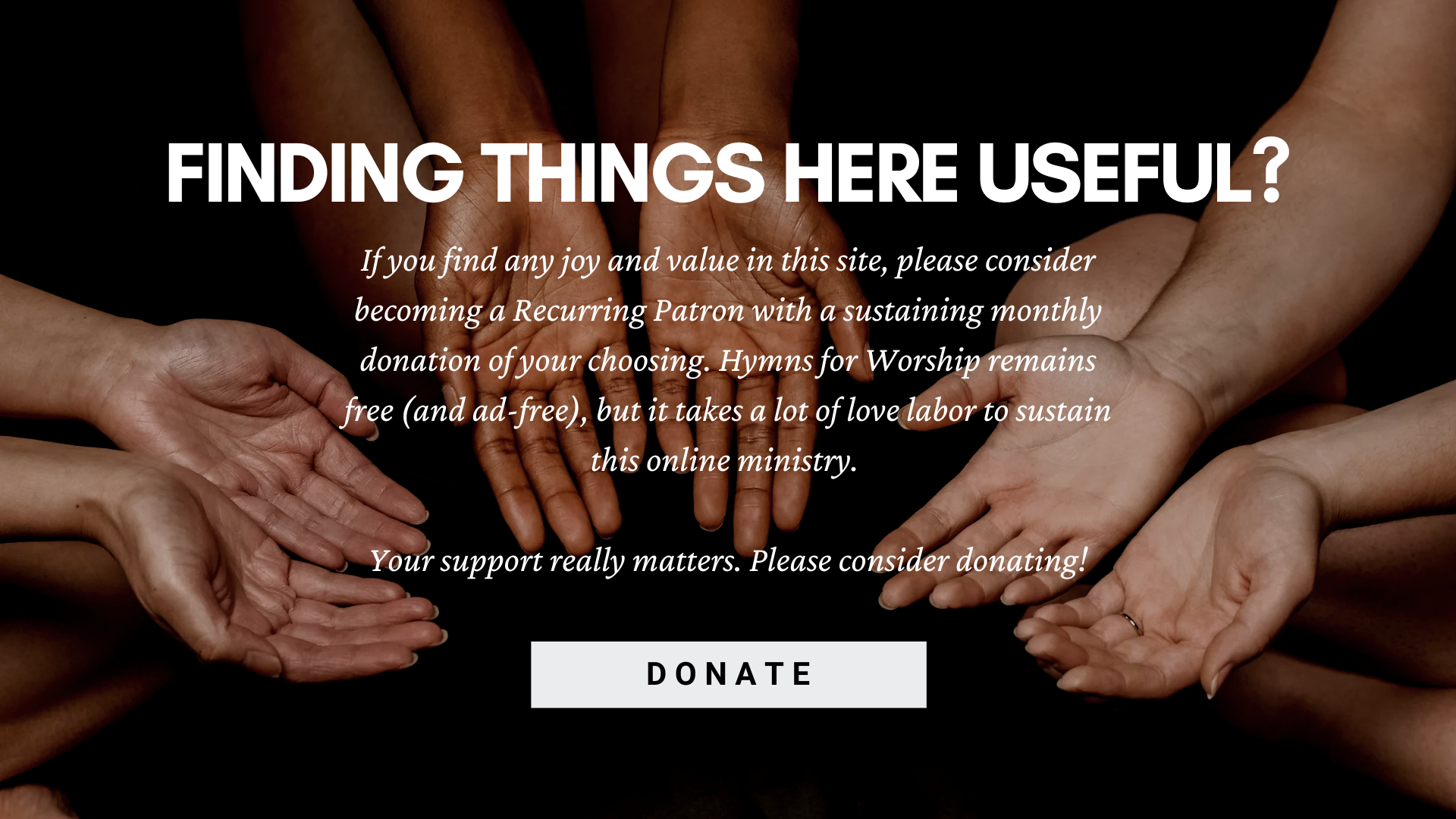For this edition of Singer’s Notes, we are interviewing Zernan Diaz or Enan, as he is fondly called. Watch his rendition of Mark Hayes’ arrangement of this soulful hymn, and then join us as Enan shares his thoughts about music and worship.
Hi Enan, thanks so much for collaborating with us on this hymn project! Today, we would just like to get to know you a little bit more and look into your own thoughts when it comes to hymns, worship, and music in general. Tell us a little bit about yourself and who you are.
Thank you for having me, Ate Irene! Glad to share my voice and thoughts with you today.
I am a proud father of three lovely girls, and my wife Jazel is a chaplain and theology professor. I’m an accountant by profession, serving the Seventh-day Adventist Church through its audit arm by providing operations support to auditors.
But music ministry has always been a passion of mine and I think God opened a lot of doors for me to be where I am. My dad likewise was an accountant who directed a church choir without formal music education, and I grew up watching the choir rehearsals, tagged along in their performances. I gravitated to the warm and fun camaraderie of the group, I always loved hanging out with them and became their youngest member while in high school. Being with older members who treated me as a brother, I learned a lot of wisdom that otherwise would not have been available from peers my age and I always treasured the fraternity a choir affords and the power of music to bind people.
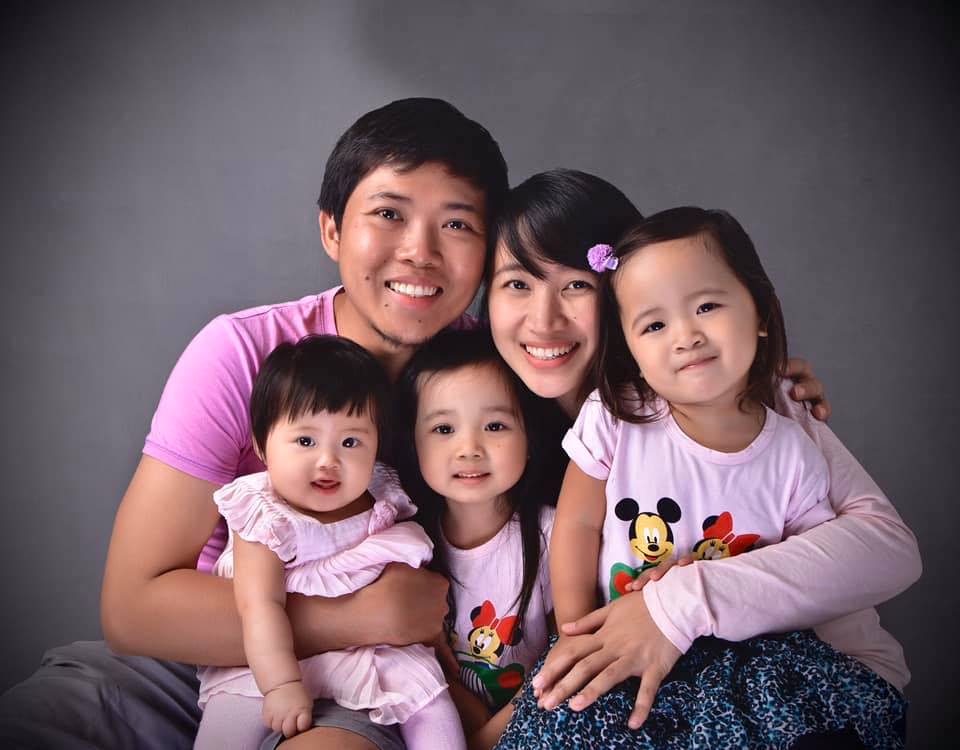
Around that time, I watched a concert of the Adventist University of the Philippines Ambassadors who just returned from their USA concert tour in 2000. It was my first time to hear a choir of great caliber, I was just blown away! I was so amazed at what I heard: how a choir can have so clear and unified pronunciation, impeccable execution of a piece’s dynamics, resonant voices that invite reflection or exude power when needed, crisp harmonies. I didn’t know it was all possible! My ears were opened to the possibilities of a beautiful choral sound produced by different people and I became deeply interested in the science behind it. I was particularly impressed with their tenor soloist that I dreamed of being one and started raising my speaking voice to be comfortable in the upper register! (I am now a baritone with no regrets.)
A couple of years later, I will become a member of the same choir for seven wonderful years that taught me the fundamentals of choral music, brought me places I never dreamed of, and taught me a lot about ministry and life. I was now able to realize the euphonic possibilities I only admired a few years back while learning the language of music. It also showed me the ins and outs of leading a choir. Little did I know that God was preparing me for a future calling to fulfill.
After college, I then became a member of the Ateneo Chamber Singers which further polished my knowledge. Then I accepted the directorship of the Manila Adventist Medical Center Church Choir in 2012 up to this day. Never did I dream that I would eventually be like my dad who served the church as an accountant and choir conductor, but God called me and here I am.
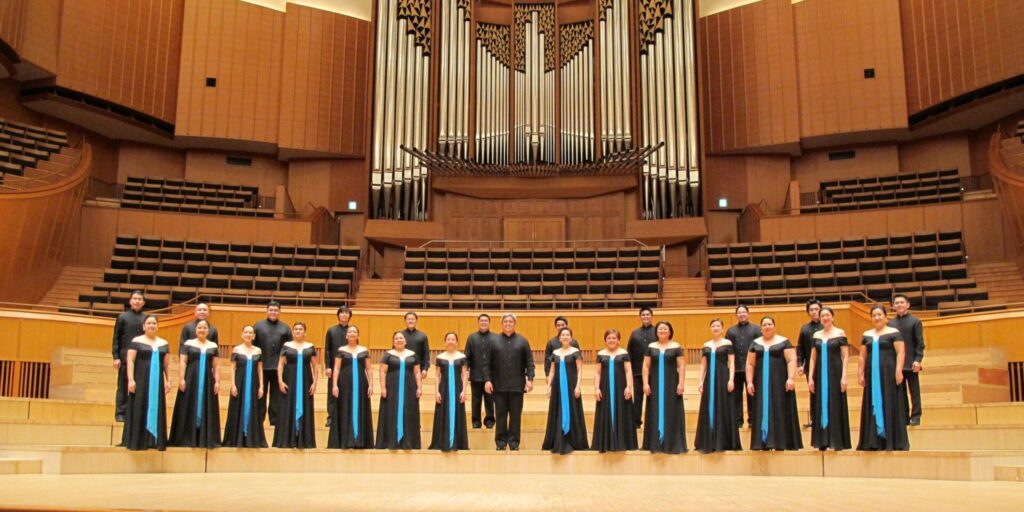
Enan is not much of a stranger to me at all because we were in the same choir back in college. He was a very active member of the AUP Ambassadors, and went on numerous tours with them. At one point, I remember him taking voice lessons and music theory classes in college while taking classes with his major, which was accountancy. You were so active in music at that time. What was the draw? Why was it so attractive for you?
When I took the subject, Intro to Music Theory, it was the second semester and I cannot take any major subjects in accounting because I was not enrolled the first sem when the AUP Ambassadors was on a three-month US concert tour. So, I looked for a subject of interest partially to fill my time but also to enrich my mind and hopefully acquire more skills.
Music has its way of bringing you to a place you otherwise cannot go. That’s what worship through music does: bring you up to the very presence of God.
ZERNAN DIAZ
Music theory was a natural choice, at least to me, because my passion for music grew much with the choir and with the mentorship of our director, Kuya Bojo Lijauco.
Voice lessons were also required for new members of the choir, but I added more lessons beyond what was required as I was determined to develop my voice wishing to be a tenor. There was even a time I considered taking music after my accounting course and being a full-time musician, but it did not materialize.
I saw the church’s immense need for music leaders; we can’t all be music majors, but we need lay musicians who can lead in meaningful worship while empowering the next generation of musicians. I didn’t know then for what purpose I will use the knowledge and skills, but it eventually enabled me to know and articulate the fundamentals which were very helpful when I later became a conductor and coach of choirs and soloists – my ministry and part-time job.
So you see music as a ministry?
Oh, definitely! I’ve experienced firsthand the power of music both as a listener and performer. Recalling the first time I heard the AUP Ambassadors, I can’t help but feel uplifted with their sacred songs, my heart worshipping God because of the wonderful music and its messages. It made me reflect on God and His attributes: His beauty, mercy, majesty, humility, power, forgiveness. Music has its way of bringing you to a place you otherwise cannot go. That’s what worship through music does: bring you up to the very presence of God.
As a singer and conductor, my most memorable performances are those when people come after the concert, many with tears in their eyes, expressing how blessed they were with our ministry. They sometimes share certain experiences they had, whether happy or painful, and how music allowed them to reminisce God’s goodness or heal from their hurts. We’ve seen people come back to God after years of rebelling because they were ministered to through music and prayer. These experiences give you a certain perspective, and it makes me thankful to the Lord that He uses frail vessels such as I.
You have a full-time job as an accountant. Yet, you still manage to lead choirs and influence other young people to be involved in music ministry. As a conductor, how do you see the importance of choirs and their role in worship?
I saw at an early age how being in a choir gives people young and old a sense of fulfillment, belonging, and self-worth. It gives them something to look forward to: the pursuit of something meaningful, camaraderie, usefulness, service, and so much more intangibles beyond music itself. I’m blessed to see how my father love the youth and serve them through his directorship and it planted something in me, further nourished by my own experiences.
In singing and worship, its participants become one. The choir dynamics emphasize unity, breathing as one, having a common expression and one goal. It reminds me of Jesus’ words, “I pray that they will all be one as You (the Father) and I are one.” Music as part of worship is a glimpse of this reality. And it is my role as a chorister to first be aligned with God, then be in sync with my choir, and then extend that unity to our listeners – the church. So it goes beyond knowing my notes or singing beautifully. When we are one in praising God, it gives a picture of what God wants to happen now and what He will accomplish in the future when we submit to Him.
Let’s talk a little bit more about the hymn you just performed for us. Is there any way at all that the hymn relates to you? Can you share why and how it relates to you?
The first time I heard Give Me Jesus was in 2008. It was my second US concert tour with the AUP Ambassadors and we were in Michigan. The song was being rehearsed by the Andrews University Choir, the first few lines a baritone solo. I fell in love with the song right away, maybe it was the simple but moving melody, or the warmth of the soloist and choir’s execution, or the depth of its message articulating the deepest longing of my soul, but I had this connection with this song that I rarely get from others.
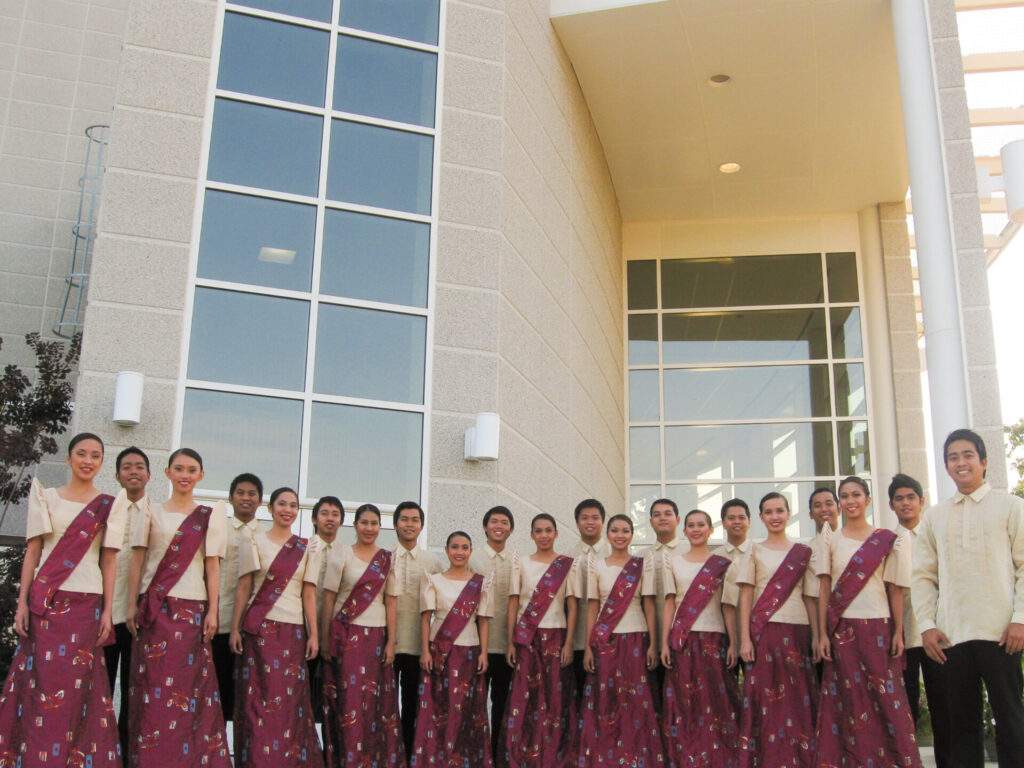
Two years later, in my third US concert tour with the group, we were in California and I found this song’s score, arranged for solo by Larry Shackley, in the book Great Spirituals which I bought without hesitation. This would be my go-to piece when invited to sing solo in church programs up to now. To say it was my favorite among my repertoire is an understatement.
Singing this arrangement by Mark Hayes is thrilling to me, like cooking my favorite meal a different way. Thirteen years after I first heard it, its message still resonates with me and I get emotional performing it. Knowing the song’s background as a spiritual also helps. I imagine the hardships and darkness the slaves may have experienced.
It is my role as a chorister to first be aligned with God, then be in sync with my choir, and then extend that unity to our listeners – the church.
ZERNAN DIAZ
Yes, you mentioned it being a spiritual, in that it is a song that was born out of a bitter experience when black slaves used to be the norm back in the day. In the original hymn, it starts out with “In the morning when I rise…” Many slave songs refer to “morning” as going to heaven, or the resurrection morning. The version you just sang for us starts out with “dying”. What do you think about death bed confessions? Can a person still have hope in Jesus at the brink of death?
While an accountant in a hospital, I also worked part-time as a chaplain. With that role, I’ve had some experiences talking to people who are on the brink of dying and to people who will be left behind. I can attest that people who know they are going to die sooner or later have an unusual perspective, as if many other matters pale in comparison to facing one’s mortality.
A common theme, especially for people of faith but also to those who are not to a lesser degree, is the fear of dying and losing significance to the world or people they will leave behind. Some were going through the stages of grief (DABDA) while others have come to the acceptance of their fate. My role was to be a listening ear, to understand what they are trying to say beyond words, be there for them and try to provide emotional and spiritual support. I’ve seen a few whose faith was as strong as ever, having the assurance that there is something beyond death because they trust in God, I found these people very admirable and these encounters helped me reflect on my own mortality and faith. Instead of me providing support, I was the one who was encouraged in these instances where faith and hope in Jesus were present.
Thanks so much for giving us a glimpse of your thoughts! If we want to learn more about your projects and ministries, where can we find you? Are there any links you want to share with us?
This collaboration has been a joy to me, thank you Ate Irene for this opportunity!
You may follow MAMC Church Choir’s Facebook page at: https://www.facebook.com/MAMCChurchChoirOfficial
Also consider subscribing to our Youtube channel athttps://www.youtube.com/channel/UC1f1-IIHtZxNp6RixNBKPjw
Blessings to all!

